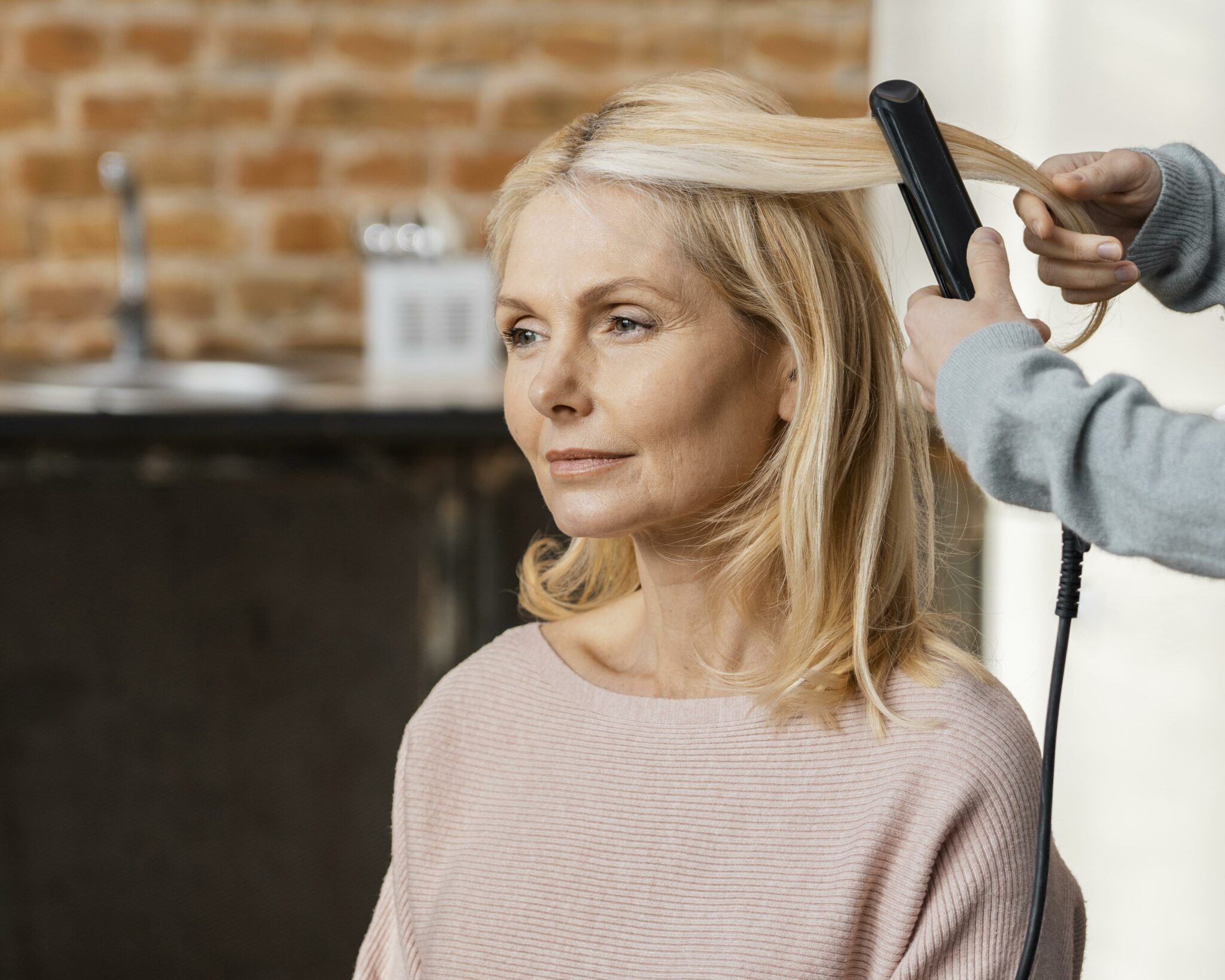Any woman who’s been through it can tell you that menopause is about more than just your period stopping– it affects your whole entire body, and often not in the most pleasant ways. If you’re currently going through menopause and are wondering if some new change in your body is caused by it, there’s a good chance that the answer is yes! One thing that some women can experience is changes to their hair. You might notice your hair thinning or shedding in large amounts and looking more sparse than it has before. It may also become dry and frizzy where once you had no problem managing it, or you may notice yourself losing hair length as it suddenly becomes brittle and begins breaking. These changes are upsetting and difficult to deal with, but there are steps you can take to help them! Here’s what you need to know.
Hormones and Menopause
At the end of the day, pretty much every change that menopause puts you through comes down to your hormones– specifically, the fact that there are less of them. As your body enters menopause, the levels of female sex hormones in your body (namely estrogen and progesterone) drop far lower than they were during the rest of your adult life. This causes your period to stop, but also impacts many, many other things in your body, like your weight, skin, hair, temperature regulation, and so on. If you can’t pin down any other reason that your hair might be looking so much different at this time in your life, it’s likely that menopause is the culprit!
Common Menopausal Hair Changes
It’s not uncommon at all for women to struggle with hair loss or other changes during menopause– in fact, it’s pretty common! Some of the things that you might notice are heavily shedding hair, where you can find large amounts of hair left in the shower drain, on your pillow and clothes, or on your brush, or thinning hair that you see on your head through bald spots that you hadn’t noticed before or thin, straggly hair lengths and ends. You might also find that your hair and scalp are very dry to the point of itching and flaking, or you may find that your hair breaks very easily now and you’re losing length. These changes can be upsetting and might make you feel insecure about your hair, but try not to panic! There are things you can do to help counteract the process and help you continue to feel beautiful and confident.
What to Do?
Hair Regrowth Treatments
Treatments for hair loss like Rogaine are often seen as something only intended for male pattern baldness, but anyone can use it to help their hair grow back in! Chemotherapy patients have relied on these treatments for many years, and you might get some benefit from them too. You can find these treatments, usually containing the drug minoxidil, over the counter at any drugstore. Use them as directed and you might start to see some good results! If you have any troublesome side effects from these treatments, make sure to talk to your doctor about them.
Diet Changes
Overhauling the way you eat in order to supply your body with much-needed nutrients is often a very important part of addressing a hair loss problem, and it can have many other benefits for your health and wellbeing, so it’s always good to give it a try! Take a look at your typical diet and see if there are any places where you can add in more protein, healthy fats, and colorful fruits and vegetables, as all of these nutrients are important to helping your body grow strong and healthy hair. Even just adding a multivitamin or some fish oil to your daily routine, if you don’t take these supplements already, can help you to see a difference!
Hair Care Changes
Changing the way you look after your hair is always a good place to start if you’re unhappy with the results you’re seeing. As you age, it’s normal to have to adapt your hair care routine to the new needs of your hair and scalp! Washing your hair less frequently, detangling it more gently, and moisturizing it more intensely with oils, deep conditioners, and hair masks are all good places to start. You can also try sleeping on slippery fabrics like silk and satin in the form of pillowcases, bonnets, nightcaps, or hair scarves. This will minimize friction and breakage on your hair ends and help maintain your length. Scalp massage is also something you can try. This technique can help stimulate your hair follicles while also acting as a relaxing habit.
Hormonal Treatments
If you’re really struggling with hair changes during menopause, addressing the root cause of the issue– your falling hormone levels– might end up being the key to solving your problems. Hormone replacement therapy can help alleviate the difficult symptoms of menopause like hair loss, so don’t hesitate to contact us today to set up an appointment at Renewed Vitality. We can help you to start feeling like yourself again!





